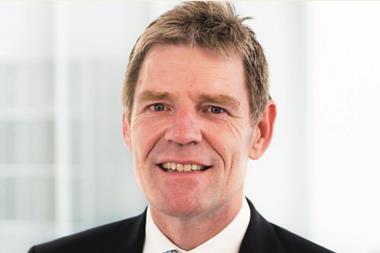Investors are looking to tap into investment opportunities in the wider private equity space, also considering early-stage venture capital (VC) investments as part of a well-diversified portfolio to reduce risks.
Ralph Schnell, managing director of Siemens Fonds Invest who is also responsible for alternative investments, would prefer private “equity only”, he said during a panel discussion at the Alternative Investor Conference organised by the Bundesverband Alternative Investments e.V. last week.
Siemens Fonds Invest is the in-house investor of Siemens’ pension assets. It has €20bn assets under management of which €2.5bn are invested in alternatives.
Schnell said Siemens’ portfolio is long-only which includes real estate and private equity, but “this can change in five years”.
He said: “If you want to tap into the broad equity market then you have to take over the life cycle of a company, from founding through growth until a stable phase and restructuring.”
“I am for diversifying, private equity buyouts large or small, or both,” said Heiko Geissler, managing director at private equity firm Ardian.
HQ Capital instead prefers the small- and mid-cap segments, defining mid-cap with funds of up to €5bn with high value strategies, managing director Linda Lindhorst told the panel.
Ralph Guenther, partner at Pantheon, a private markets investor working with pension schemes, added that he would also “maybe look at private debt secondaries”.
According to the investors, a well diversified portfolio – which includes private equity – reduces investment risks, but the asset class is often perceived unfairly riskier than other asset classes, such as private debt.
Siemens Fonds Invest also allocates to VC, but avoids investing in late-stage ventures from year one. “There are big risks”, Schnell said, because valuations are inflated.
Early-stage VC investors, on the other hand, can take over the innovation cycle of a company and “venture can bring significantly higher multiples than buyout,” he added.
Asked about strategic asset allocation in the current market environment, geopolitical tensions and fluctuations in capital markets, Schnell said Siemens Fonds Invest has a long-only view making it difficult to adjust its portfolio in the case of short-term disruptions.
It took seven to eight years to build up Siemens AG Pension Trust’s investment portfolio, he said.
“We have not changed our strategy in the last 15 years [because] we have not had any tactic issues until the global financial crisis,” Schnell said. He added that it only invests in long-only private equity (VC), equity buyouts and distressed debt.
Pantheon’s portfolio also holds early-stage VC investments which bring a diversifying effect, Guenther said, noting that late-stage VC or pre-IPO investments are “difficult” as companies may be overvalued.
Private equity and debt markets
The strong demand for private equity dates back before the start of the COVID-19 pandemic.
“We have seen an acceleration, kicked off by low and zero interest rate environments with the need to achieve returns,” Lindhorst said, adding that private equity is a relatively stable business model and a stable building block in investment portfolios.
The demand for private equity from German institutional investors has been “massively high” in the run up to the financial crisis in 2008 because of the asset class’s returns also during the crisis, said Guenther.
For the past 10 years Germany has seen a “massive increase in demand” for infrastructure investments and “we see the same for private debt,” Guenther said, adding that the feeling is that the German market is in a transition phase where investors are starting to allocate assets to private debt.
For Geissler, the last 10 years after the financial crisis have shown that some sectors have performed significantly better with an impact on valuations, and that in sectors such as software technology or healthcare a certain knowledge is necessary “to be able to survive in the process”.
HQ Capital may take tactical considerations recommending to investors new to the asset class to have a significant share in secondaries. After Brexit, the firm has not invested in secondaries or made co-investments in the UK, Lindhorst said.
The latest digital edition of IPE’s magazine in now available













